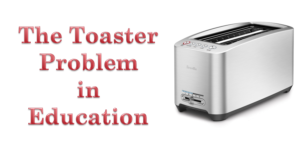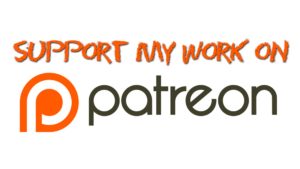 It’s easy to talk about shifting education towards a more concept based approach. But it’s hard to see what that really means in practice. I’m not a betting man, but would be willing to bet that upon inspection there are many things you think you understand conceptually in your topic, but you just feel that way because you understand procedure well enough to always arrive at correct answers.
It’s easy to talk about shifting education towards a more concept based approach. But it’s hard to see what that really means in practice. I’m not a betting man, but would be willing to bet that upon inspection there are many things you think you understand conceptually in your topic, but you just feel that way because you understand procedure well enough to always arrive at correct answers.
I can offer an example in math: Why does the order of operations work? Why does the structure in the order of operations guide us to the correct calculation?
Let’s use a mathematical way of thinking to approach this problem of understanding what conceptual approach education looks like, compared to our current procedure based approach. (Tell-tale sign that you’re procedurally based is if your students cannot remember how to do something big a year later. Or, do you consider the work assigned before your lesson?)
Imagine you want your students to know how to make toast. You could introduce them to a toaster. Then, demonstrate how the bread-item is dropped in the slots on the top, the little knobby is turned to select the desired level of darkness, the button with the picture of the type of bready-material being toasted is pushed, and the lever is depressed.
If it’s an advanced class, maybe some discussion is given to what to do if the toast gets stuck, and why you should always unplug the toaster when finished with it because toasters have notoriously cheap circuits that short out, causing a fire.
Oh, one last thing. All toasters are good toasters. There are no bad toasters. Some make light toast, some dark toast. If you show preference to one kind of toaster, you’re then the exception to the rule because we tolerate everything except intolerance.
That’s a very typical American style of teaching something. We cover how to use a tool and throw in a little social justice message to boot. (That is not a comment on the need for awareness of social issues except to say that math textbooks are inappropriate platforms for them.)
Imagine that instead of wanting your students to know how to make toast, you wanted them to know about toast. You teach them what it is, previously cooked bread that is now slightly, but evenly, burned on the cut-faces making a slightly stiffer, crunchier piece of substrate for the delicious spreadable material of your choosing.
For the sake of this thought experiment, let’s say you also show them a toaster, but that’s it.
Now consider a pair of students. One who learned the first method, and the second learned about toast, but spent little time with a toaster.
Which student could make toast if the toaster broke? Which understands what a toaster really does?
Teaching how to use a toaster is procedural, while teaching what toast is would be conceptual.
Education is a HUGE industry with an enormous amount of inertia to overcome before change is realized. There are jobs at stake if responses to changes go wrong. Companies invest millions to supply the desires of schools. And what do schools want? They want to be like everybody else, because it’s safe!
We have these methods, that if not effective, are at least safe because we have used them for a long time, so has everybody else. So if we’re close to the average, we’re okay.
But don’t get me wrong, things in education will change. Pretty soon curriculum will be all conceptual. Kids will be reinventing the wheel at every turn. We see some of that in the elementary levels right now. That’s truly a shame because it’s harmful. Young kids do not yet possess the faculties for abstraction! They need to know how to use a 3rd grade toaster, if you will.
I am NOT a doomsday preacher here, but I do not believe education cannot fix itself. It is so established in the way it operates that the path we are on will remain until something really big from way up high changes. The likelihood of that being a good change is slim because politicians aren’t educators. Even if the idea is good, from above, the execution will be poor because it’s ideas, not how they play out, that gets people elected.
But, the change from teaching how to use a toaster to teaching what toast is, well, is needed. Even for students to pass the new style of standardized testing they need to know what toast is.
Beyond that, for them to be successful in college, the nature of toast must be understood. To change math from a hurdle to an opportunity, they’ve got to know all about toast, not just how to use the toaster.
It is these last two things, the belief that the education system cannot right itself, and the need for conceptual understand, that has motivated me to step outside of education for my project.




The problem is: Not everyone learns at the same rate. Some us need to do certain processes repeatedly and THEN understanding is achieved. One can listen to how an air conditioning system can be converted to a heat pump, with considerable repetition, but only after 10-15 problems or so can one understand the thermodynamic principles. The same thing applies to, say, solving matrix multiplication, or even LCM & GCF problems and being able to answer questions correctly on a test. The key is that students must take a math course every semester in high school. It not the end of the world to do poorly and then have to retake a course. A child’s mental processes grows each year in school. By continued exposure to the mental processes needed for math “Dawn Comes to Marble Head”!